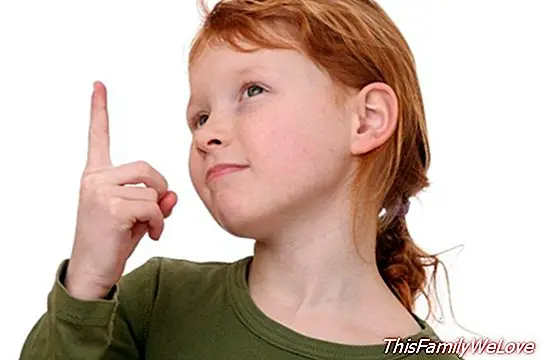The development of children's memory

Memory is something that accompanies the child from the moment he is born. This will be developed throughout his life and will become a very important instrument for various life activities. Parents can contribute to this capacity is maximized and matured properly.
It is not strange that the first memories we have of our childhood go back to when we were three years old, the same age at which we begin to speak. And it is at these ages when children also begin to develop attention and observation skills. If we stimulate them in an appropriate way, this mental tool will be perfected remarkably.
Children's memory, an essential tool
The ability to memorize has much to do with the development of observation and attention, so that the senses of sight and hearing are especially important between 3 and 6 years, since they are the two most important entry ways. to stimulate the memory of children.
Most stimulation exercises that are proposed for rote learning at this stage seek to make the child aware of what he sees and hears, so that he can then retrieve that information when he wishes. Developing memory will be very important for the future, since the agility at the time of retaining what you learn will be very useful for your subsequent studies and of course, for the activities you carry out day by day. Your memory will become a vital tool to carry out different jobs and properly organize your daily life.
The routine, key to memorize
The techniques to improve our child's memory are as varied as they are simple. And one of these is the daily routine itself, which in addition to helping your rote learning, will be an advantage to develop virtues such as order and discipline.
The simple fact of accustoming them to follow a certain schedule, repeating constantly the same acts, helps the child to begin to develop his memory in any of the phases of growth in which he finds himself.
So, if we always sleep at the same time and in the same way, singing that child's song or narrating that story you like so much, there is no doubt that we will be greatly encouraging that the child begins to remember much earlier than he we imagine the words and gestures that we usually perform during those moments.
It is also important that we talk with the child, establishing with our sentences a temporary sense of what we do at each moment: "But how handsome are you after the bath!" Or, "Now let's take a nap and then go back to the park rested." With this simple technique we will be allowing our son to assimilate the facts with greater ease by giving them an order and a specific time in space.
How does memory work?
- When we associate a new learning with previous ones, the retention is much better. For example, reciting the multiplication tables with a melody.
- It is more efficient to distribute an activity in several sessions. For our son, it is more effective to learn something in several days than in only one.
- Better retention, The more time the child is exposed to the material to be memorized.
- The usual way to test memory It is through two types of tasks: memory and recognition. The child can remember a poetry that he has learned and recognize the figure of a square among other geometric shapes.
- Active repetition allows the maintenance of information and favors the integration of new material with those already stored previously.
- It is necessary to organize the material that will be memorized. For the child, it is much easier to learn and retain the information that is organized hierarchically into categories. For example, the classification of animals, plants, fruits, etc.
- How much more time is spent memorizing what you want to retain, better is the subsequent memory.
- Techniques to improve memory Children are as varied as they are simple.
- It is important to establish a temporal sense when we talk to the child with our sentences.
- After 3 years,Children begin to develop memory through attention and the ability to observe.
Conchita Requero
Adviser: Ricardo Regidor. Editor and author of several books, such as Capabilities of the child.
You may also like:
- How to stimulate the memory of children
- Stages of baby language
- Exercises to stimulate the memory of children




